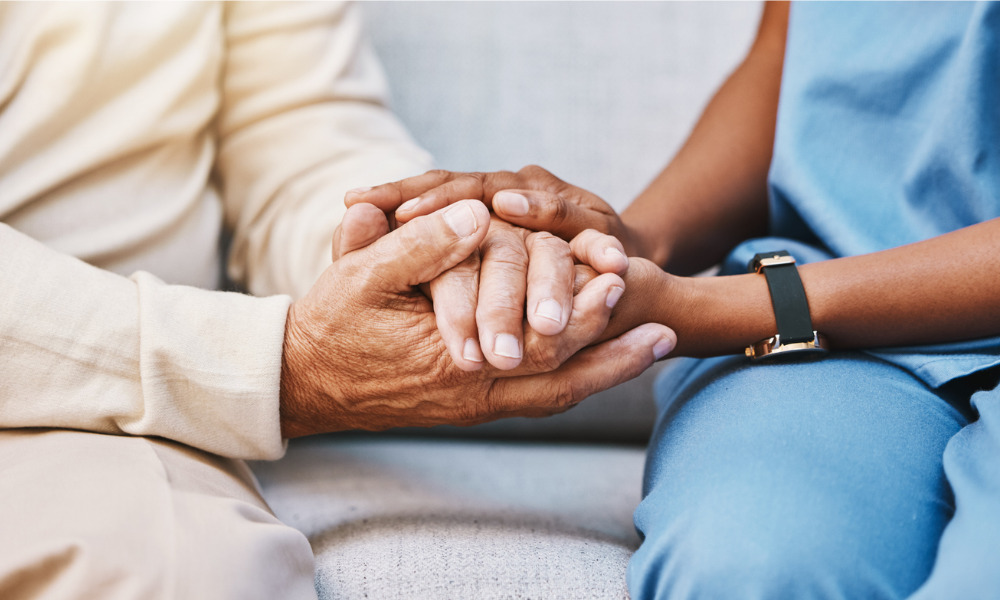Federal cap on incontinence products challenges a Manitoba Cree Nation care home, raising concerns about elder care

Staff at a northern Manitoba Cree Nation care home report that a federal government cap on incontinence products is insufficient for the needs of elders, according to CBC News.
Indigenous leaders and health advocates describe the cap as “inhumane” and “offensive,” highlighting how it disadvantages remote First Nations communities.
The Nisichawayasihk Cree Nation (NCN) personal care home learned after enrolling in a federal plan this year that Ottawa limits incontinence products like disposable briefs and pads to five per resident daily.
Katrina Lusung, a nurse in the community, stated that this cap has caused shortages, forcing staff to drive an hour to Thompson to purchase additional supplies.
“We're not going to let them sit on their incontinent products when they're visibly soiled or fully soaked.... These residents are like my family,” Lusung said. The care home faces challenges “because of the inadequacy of the amount that they are providing ... which is obviously not enough,” she added.
The care home joined the federal government's non-insured health benefits program in March, switching from a direct purchase from a medical supply company due to financial pressures.
This program covers nearly half the costs of wound and ostomy dressings, incontinence products, and other items for some on-reserve long-term care facility residents. However, the home was unaware of the five-per-day limit until after receiving an initial three-month supply.
The average number of disposable briefs or pads used daily by NCN care home residents exceeds the cap, due to various conditions causing incontinence, said care home executive director Jessie Horodecki.
“They're saying each resident shouldn't need more than five incontinence products a day,” she noted. “We see this every day. We need a minimum of 12 per resident daily.”
Indigenous Services Canada spokesperson Jacinthe Goulet stated that the 24-bed NCN facility receives joint funding from the federal department and Manitoba Health.
She confirmed that Indigenous Services sets “frequency and/or quantity limits on some products” based on “consultation with health professionals.”
Chief Angela Levasseur of Nisichawayasihk Cree Nation criticized the five-per-day limit, calling it “inhumane and unjust.” She noted that the NCN personal care home must cover additional costs.
Accessing federal non-insured health benefits is complex and has suffered from “consistent cutbacks” over the years, impacting which medications and products are covered.
“It's jeopardizing our ability to run our personal care home facility and to provide our elders with the care that they desperately need and deserve,” Levasseur said.
Indigenous Services contracts 7 Generations Medical Ltd. to supply participating care homes with medical supplies.
Kendall Smith, the owner, described the federal government’s daily cap as “quite generous” compared to some provincial programs and “not out of the realm of what's normal across the country.”
Residents on prescribed diuretics or with conditions requiring more frequent changes can obtain additional products with a prescription.
Goulet advised clients with “unique needs” to contact the non-insured health program for additional incontinence products. Lusung explained that staff in Nisichawayasihk must justify in requisition forms why each resident needs specific items, leading to delays and shortages.
Smith attributed these delays to the federal prescription approval process. “They're very adamant you can't supply anything until you got the approval,” he said. “I understand it’s unfortunate ... as it gets straightened out.”
Smith also mentioned that manufacturers of disposable pads and briefs in Canada recommend changes only when there is stool, as the products are designed to absorb urine quickly.
Barry Lavallee, CEO of Keewatinohk Inniniw Minoayawin Inc., criticized the federal system for setting caps based on manufacturers' guidelines.
“I take offence to any company that's making money off Indigenous people to suggest the number.... If we need 10 [products daily per patient], so be it,” he stated.
Lavallee's organization represents 70,000 First Nations people from 23 northern Manitoba communities and advocates for reforms in the federally administered health-care system. He noted ongoing barriers to accessing medication, eyewear, dental care, and rehabilitative services for First Nations.
“Both provincial and federal systems have always had a 'care less' approach” to First Nations administration, affecting health outcomes, he said.
Lavallee suggested that the caps faced by Nisichawayasihk highlight the need for change. His organization aims to manage the non-insured health benefit program for the nations it represents and renegotiate costs with Ottawa.
“Those bureaucracies, which are quite resistant, don't seem to change no matter what kind of government we have in place,” he said. “Our negotiations as we go forward … will be far higher than their current budget. That is a fact.”



